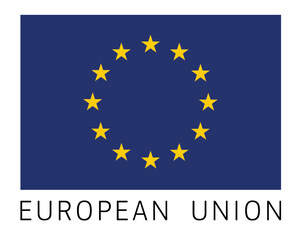EU and US to Hold Second Round of Trade Negotiations in Brussels on November 11-15
WASHINGTON, Nov. 4, 2013 /PRNewswire-USNewswire/ -- The European Union and the United States today announced they will hold a second round of the Transatlantic Trade and Investment Partnership (TTIP) talks in Brussels from November 11 - 15, 2013. The week-long round of negotiations replaces the talks originally scheduled for October 7-11 which were postponed due to the shutdown of the US government. This round of negotiations will now put the TTIP discussion process fully back on track in terms of the planned negotiation timeline.
The talks in Brussels will be followed by a third round of negotiations to be held in Washington, DC the week of December 16.
"I am glad to see our talks are going ahead full speed," said EU Ambassador to the U.S. João Vale de Almeida. "We are keeping up momentum in our negotiations as we now turn to services, investment, energy, raw materials, and regulatory issues."
Information for stakeholders
The European Commission will organize a briefing session for stakeholders during the second round of the negotiations on Friday November 15. Non-governmental organizations, consumer groups, trade unions, professional organizations, business and other civil society organizations will have the opportunity to exchange views with chief negotiators of both sides. More information on registration.
Information for media
On Friday, November 15, the chief negotiators Ignacio Garcia Bercero and Dan Mullaney will brief the media on the record in a press conference. The press conference will be broadcast on Europe by satellite (EbS) for broadcasters and can be followed live via a web stream.
Background
The second round of talks follows on from the successful negotiations held from July 8-12 (IP/12/691).
The aim of the Transatlantic Trade and Investment Partnership is to liberalize trade and investment between the EU and the US. It is expected to result in more jobs and growth and assist Europe in its long-term recovery from the economic crisis.
The European Union and the United States have their eyes on more than just removing tariffs. Tariffs between them are already low (on average only 4 percent) so the main hurdles to trade lie 'behind the border' in regulations, non-tariff barriers and red tape. Estimates indicate that 80 percent of the overall potential wealth gains of a trade deal will come from cutting costs imposed by bureaucracy and regulation, as well as from liberalizing trade in services and public procurement.
Improving regulatory cooperation will aim at creating similar regulations on both sides of the Atlantic rather than having to try to adapt them at a later stage. The goal is to build a more integrated transatlantic marketplace, while respecting each side's right to regulate in a way that ensures the protection of health, safety and the environment at a level it considers appropriate. Both sides hope that by aligning their domestic standards, they will be able to set the benchmark for developing global rules. Such a move would be clearly beneficial to both EU and US exporters, but it would also strengthen the multilateral trading system.
For further information
All documents on the negotiations of the Transatlantic Trade and Investment Partnership (TTIP)
TTIP - The Regulatory Part
"Solving the Regulatory Puzzle" - Speech by EU Trade Commissioner Karel De Gucht, October 10, 2013
Independent study on benefits of EU-US trade agreement - MEMO/13/211
More information on the EU's trade relations with the United States
www.EUintheUS.org & @EUintheUS
SOURCE Delegation of the European Union to the United States
WANT YOUR COMPANY'S NEWS FEATURED ON PRNEWSWIRE.COM?
Newsrooms &
Influencers
Digital Media
Outlets
Journalists
Opted In





Share this article